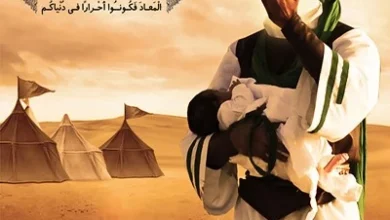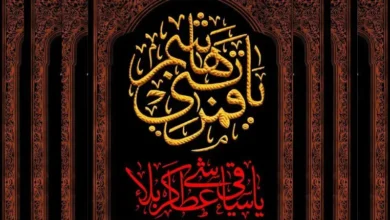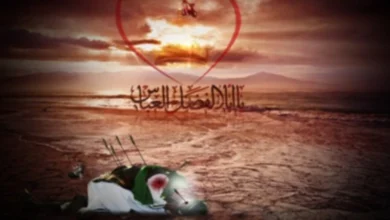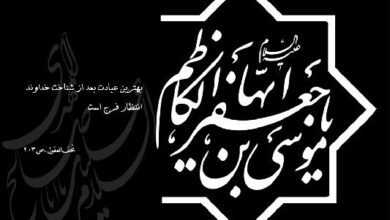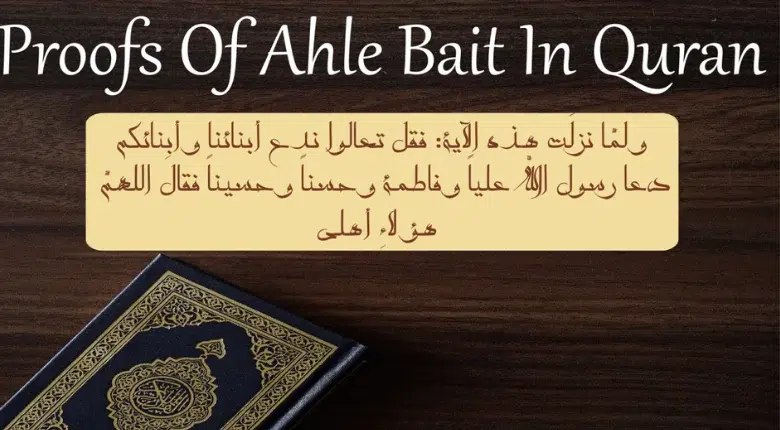
Ahlul Bayt Prove From Quran OF Ahle Bait
Prove from Quran that Ahle Bait are Ahle kisa , the five who were under the kisa and Allah almighty revealed the ayat e taheer for them. It is proved from Quran that wives of Holy Prophet (pbuh) are not included in Ahle Bait.
Sahih Muslim and al-Tirmizi provide another reason for the Prophet’s wives’ absence from Ahle Bait and Imam Ali (as)’s leadership after the Prophet (pbuh).
The Holy Prophet (pbuh) imprecated 14 Christian priests from Najran in the 9th–10th year of Hijrah.The next day, three Qur’an verses (3:59–61) mentioning Hazrat Issa (as) were revealed. When Christians denied Allah, the Prophet said the last verse.
But whomever disputes with you on this matter after you know, say:Come, let us call our sons and your sons, our ladies and your women, and ourselves and your selves; then let us be earnest in prayer and pronounce the curse of Allah upon the liars. Quran 3:61.
فَقُلْ تَعَالَوْا نَدْعُ أَبْنَاءَنَا وَأَبْنَاءَكُمْ وَنِسَاءَنَاوَنِسَاءَكُمْ وَأَنفُسَنَا وَأَنفُسَكُمْ ..
Holy Prophet Hazrat Muhammad (pbuh) faced Christians. Next day, Christian priests emerged. The Holy Prophet (pbuh) brought Imam Hussain (as)out of his house with Imam Hasan (as) holding his hand, Ameer ul Momeneen Imam Ali (as) and Hazrat Fatimah al-Zahra (sa) followed him.
When the Christians saw the five pure souls and how resolute the Prophet is that He placed his closest friends in peril, they were terrified, abstained from the malediction (Mubahala), and agreed to a covenant with the Prophet (pbuh).
So it was proved from the verse of Quran that Ahle Bait are the same who were Ahle Kisa. The Holy Prophet brought the Ahle Kisa to the Mubahala ground on the command of Allah Almighty. There was not even a single person either from the wives or companions of the Prophet (pbuh).
The verse of Quran that Ahle Bait are Ahle Kisa
In ayat e Mubahala the “Sons” alludes to Imam Hasan (as) and Imam Hussain (as), “women” to Hazrat Fatimah(sa) and “our selves” to the Holy Prophet (pbuh) and Imam Ali(as) making Ali “the self” of the Prophet (Nafs).
Durr al-Manshoor
Overthrowing ‘Ali, Allah’s “self,” is forbidden. Overthrowing ‘Ali toppled the Prophet! Another Quranic evidence that Imam Ali (as) will succeed the Prophet (pbuh).
Muslim and al-Tirmizi preserved this tradition in their authentic collections:
Abi Waqqas:
The Prophet called ‘Ali, Fatimah, Hasan, and Husayn after verse 3:61.
“O Lord, this is my family (Ahli),”the Prophet said.
Sunni sources:
Sahih Muslim, ‘Ali’s Virtues 1980 Edition, Pub. Arabic Version, tradition #32.v5, p654.
- al-Mustadrak, by al-Hakim, v3, p. 150, who verified this tradition based on al-Bukhari and Muslim.
Zakhair al-Uqba, p. 25.
Both provide the tradition’s Arabic text.
Muslim, Tirmizi:
و لمَّا نزلَت هذه الآية: فقل تعالوا ندع أبنائنا و أبنائكم… دعا رسول الله علياً و فاطمة و حسناً و حسيناً فقالَ اللهمَّ هؤلاءِ أهلي.
According to it, the Messenger of Allah (pbuh) exclusively called the Ahle Kisa His ” Ahl” (family).
Allah Almighty said,
“Let us bring our women,” but the Prophet only brought His daughter Hazrat Fatimah (sa). The Prophet was ordered to bring all Ahle Bait ladies, but He only brought Hazrat Fatimah (sa).
Muslim, al-Tirmizi, al-Hakim, and many other Ahle Sunnat scholars confirmed that the Prophet explicitly recognized Ahle Bait one by one.
After 2nd Caliph Umar’s death, Imam Ali (as) informed Shura members of His claims to the Caliphate, according to certain Sunni scholars:
“I adjure you in the name of Allah; is there anyone amongst you closer in relationship to the Messenger of Allah than me? Is there any other man whom the Prophet made “his (own) soul’ (Nafs), and that he made his children ‘his (own) children’, and his woman ‘his (own woman)? No, by God!” We are only Ahle kisa are the Ahle Bait of Holy Prophet (pbuh).
Per al-Darqunti:
Al-Sawaiq al-Muhriqah, Ch. 11.1, p. 239
Kunooz al-Mataalib
Narrated also:
“Verily, Allah, to whom belong Might and Majesty, has placed the progeny of each Prophet into his backbone (Sulb), and He, Exalted, has placed mine into ‘Ali Ibn Abi Talib,” said the Prophet (pbuh).
“Me and ‘Ali are from one tree, whereas the rest of humanity are from distinct trees,” said The Holy Prophet Hazrat Muhammad (pbuh).
أنا و عليٍ من شجرةٍ واحدةٍ و سائرِ الناس من شجرٍ شتَّى.
Al-Sawa’iq al-Muhriqah, Ch. 9.2, p. 190.
Jalaluddin al-Suyuti, Tarikh al-Khulafaa, 171.
Jabir Ibn Abdillah al-Ansari’s al-Tabarani’s al-Awsat
Quran commentary by Abdullah Ibn Umar:
“Had there been any soul on earth higher than ‘Ali, Fatimah, Hasan, and Hussain? Allah would have commanded me to take them along to Mubahala,” said the Prophet (pbuh). Allah picked them especially for Mubahala because they were outstanding in dignity and respect.
Tafsir al-Baidhawi 3:61
Finally, Christian-Prophet (pbuh) Mubahala was notable in various ways:
- All Arabian Christians avoided opposing the Holy Prophet (pbuh).
- Allah ordered the Holy Prophet and His Ahle Bait to “mubahala” (literally “curse each other”), showing how Allah’s Will regulates Prophethood and Islam without Ummah interference. (Imam Alis (as) ascension after the Prophet should be regarded similarly.)
- Imam Ali(as) Hazrat Fatimah(sa), Imam Hasan(as) and Imam Hussain (as)obeyed the Holy Prophet combine made Allah’s Will.
- Imam Hasan (as) and Imam Hussain (as) worked on Mubahala with the Holy Prophet(pbuh) despite their youth since immaculate souls are ageless.
- The Holy Prophet favors the chosen ones who are chosen by Allah Almighty. This prophetic tradition identifies Ahle Bait.
- Allah’s revelation calls Imam Ali (as) the Prophet (pbuh) “self” and finest successor.
Was it Just kinship?
As told: “Any relation must terminate on the day of judgement save my relation,” said the Messenger of Allah. “And the root (identity) of everyone is his father, save the children of Fatimah(sa) since I am their father and root.”
Sunni sources
- Ibn al-Jawzi, al-Bayhaqi, al-Darqunti, and al-Dhahabi on Umar Ibn al-Khattab, Abbas, Zubair, and Umar.
Ibn Hajar al-Haythami, al-Sawa’iq al-Muhriqah, 11.1, p. 239
Abu Ya’la and al-Tabarani recounted Fatimah (sa) and Ibn Umar’s story.
The Prophet and his Ahlul-Bayt’s spiritual purity and clean DNA make their relationship unique. Islam considers blood connections little and will quickly evaporate on Judgement Day.
Lady Fatimah (sa) is the only prophetic child who had children. All other prophetic children died young, unable to resolve issues. Hijaz (Arabia) unbelievers denigrated the Prophet by saying he had no son to carry on his lineage. Allah revealed the “al-Kawsar” Chapter:
“Lo! We gave you abundance—a long-lived, clean progeny. Pray and sacrifice. Lo! (Qur’an, Chapter 108).
إِنَّا أَعْطَيْنَاكَ الْكَوْثَرَ ﴿١﴾ فَصَلِّ لِرَبِّكَ وَانْحَرْ ﴿٢﴾ إِنَّ شَانِئَكَ هُوَ الْأَبْتَرُ ﴿٣﴾
In The above chapter, Allah called Hazrat Fatimah al-Zahra (sa) Abundance, who gives the Prophet sanctified progeny, which history and Hadees count at 14 Masomeen (including the Prophet).
Abu Jehal and his Pagan supporters mocked the holy Prophet by the death of his two young sons with Hazrat Khadija(sa), but where were they a few years later when the divine light shone brighter than ever?
What did muslims do with Ahle Bait? After the death of Holy Prophet (pbuh) His beloved daughter Hazrat Ftima (sa) was injured and martyred . Ameer ul Momeneen Ali ebn e Abi Talib (as) was denied from the right of khilaphat. Although in Khum e Ghadeer the Holy Prophet (pbuh) nominated Imam Ali as His successor. Finally He was martyred by Ibn e muljim while offering the fajjar prayer in masjid e Kufa.
After the war of Siffin, Syria’s disloyal governor, Muawiyah, prepared another attack and bought key elements of Ahle Bait army with money and bribes, completing a peaceful military coup and taking power. Imam Hasan was poisoned shortly after.
Yazid, Muawiyah’s corrupt and intoxicated son, assassinated Imam Hussain (as), the Prophet’s second and final grandson, in Karbala 50 years after the Prophet’s death.
The above was a very short, horrible story of what happened to Ahle Bait, whom the Quran and the Prophet (pbuh) ordered us to love and obey beside the book of Allah.

